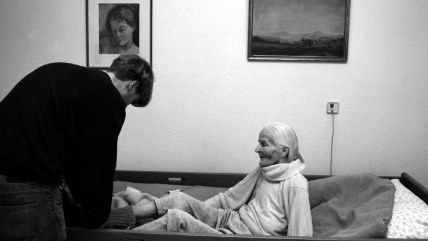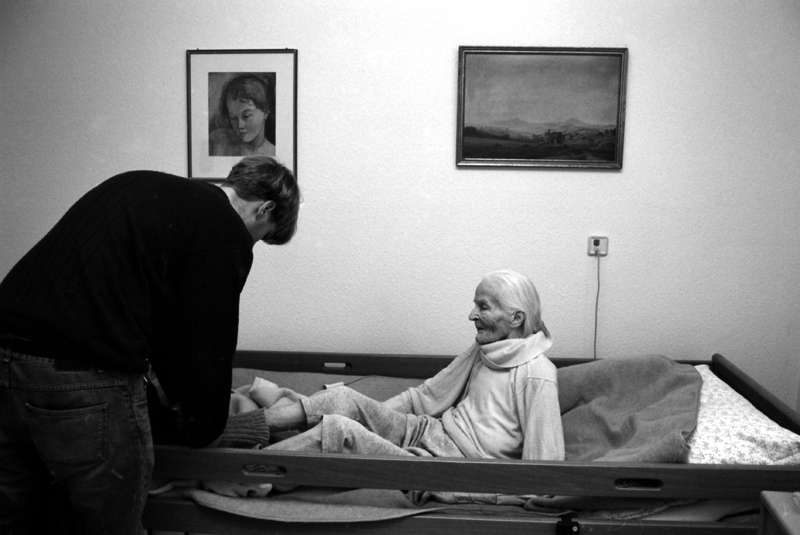Penn. Court Says State Can't Block Folks from Some Jobs Forever Entirely Due to Criminal Record
Lifetime ban ruled a violation of due process.


A modest but important win for occupational liberty in Pennsylvania. Today its Commonwealth Court judges (that's a step below the state's Supreme Court) ruled unanimously that a state law that forbids people with any criminal past from getting jobs in nursing homes and long-term care facilities is unconstitutional.
National Public Radio, which had been exploring the impact of these kinds of laws, describes the ruling:
By a vote of 7 to 0, the court found the law violates the due process rights of otherwise law-abiding people who may have run afoul of the justice system decades earlier. The court also concluded that a lifetime ban on employment for people convicted of crimes is not "substantially related" to the "stated objective" in the Older Adults Protective Services Act—to safeguard the elderly.
The vagueness of these laws, and the lack of any relationship between the crimes and the occupation involved, has been a big problem from countless Americans with records of very old or not particularly significant crimes. NPR offers up an example:
The ruling represents a victory for plaintiffs like Tyrone Peake, featured in an NPR story in April.
Peake was arrested with a friend in 1981 for trying to steal a car. Peake never got behind the wheel, but he was convicted of attempted theft of an automobile and served three years of probation. The case became a black mark that prevented him from working full-time as a drug counselor for decades.
"I've been fired from three jobs," Peake told NPR, "because [of] having a criminal record. And my record is like 32 years old, and I haven't been in trouble since then."
NPR notes that other plaintiffs in the case had convictions for crimes more than 15 years old and had been clean since then. But they were still subject to a complete lifetime ban on holding these positions. There's something particularly twisted about having these kinds of bans that make it impossible for people in this situation to work in many different fields, closing off dozens of avenues for legal economic success, and then to also worry and warn about possible recidivism.
The state's attorney general is reviewing the opinion, according to NPR. They did defend the law in court. There was no word yet on whether they would be considering an appeal to the state's Supreme Court.
(Hat tip to the Reason Foundation's own Lauren Krisai, director of criminal justice reform.)


Show Comments (44)